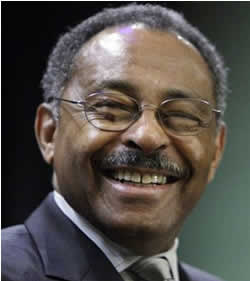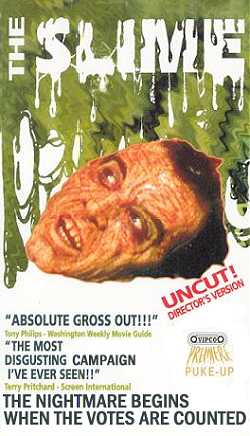 Begun as a loosely affiliated groundswell of Constitution-waving protesters in tri-cornered hats, the Tea Party movement is now starting to rock the political establishment in key arenas. Begun as a loosely affiliated groundswell of Constitution-waving protesters in tri-cornered hats, the Tea Party movement is now starting to rock the political establishment in key arenas.
The growing numbers of Americans coming out to the Tax Day Tea Party, the Fourth of July Tea Parties, and then the 9/12 Tea Party march on Washington are going back to their home districts and keeping up -- even intensifying -- the fight for smaller government and more transparency on spending and taxation.
In places like New York, Florida, California, New Hampshire, and Pennsylvania, local, state, congressional, and gubernatorial seats are suddenly being tugged to-and-fro by the new and unruly political force.
The upshot?
The street energy is welcome for an otherwise moribund Republican party looking for new moorings amid a tumultuous electorate.
The downside is that early examples shows that, in the short run, Tea Party-sponsored candidates could make it more difficult for Republicans as they -- Ross Perot-like -- split races as they target both "tax and spend" Democrats and those they like to call RINOs, or "Republicans-in-name-only."
"In the Republican primaries, especially, the Tea Party movement could be a very significant force" -- and not always in the Republicans' favor -- says Charles Franklin, a political science professor at the University of Wisconsin, in Madison.
In New York's 23rd congressional district, Democrats may ultimately thank Tea Party conservatives for backing businessman Doug Hoffman, a Conservative Party candidate, in a three-way congressional race in November -- the sole national race this year.
Mr. Hoffman's supporters have pulled voters away from the Republican moderate, Dede Scozzafava, leaving the Democrat, Bill Hoffman, with the lead, according to polls. The "NY-23" battle, as it's called, is already causing rifts in the Republican party, with Tea Party activists booing former House Speaker Newt Gingrich for backing Scozzafava.
In Florida, former Republican House Speaker Marco Rubio is courting Tea Party activists in a primary challenge to Gov. Charlie Crist, whom Tea Partiers see as a "Judas" for supporting the $787 billion stimulus package signed into law by President Obama in February.
In a perhaps unwelcome strike for Republicans near the President's home turf, Tea Party activists have turned against the bid by Illinois Rep. Mark Kirk, a Republican, to seek Obama's former Senate seat, citing Mr. Kirk's support for a climate change bill.
Other Tea Party targets for scorn include Senate-seekers such as Republican up-and-comer Kelly Ayotte in New Hampshire, Rep. Mike Castle in Delaware, and former Rep. Rob Simmons in Connecticut. Tea Party activists also could play a role in Republican primary matchups in Texas (Rick Perry versus Kay Bailey Hutchinson) and in Pennsylvania (Pat Toomey versus Arlen Specter).
"The American people are finally standing up and saying no to political correctness and no to the hijacking of our freedoms, liberty and our culture," says Tea Party activist Lloyd Marcus. "It's not about Republican or Democrat any more. It's about character and principle."
In Washington, Senate Minority Leader Mitch McConnell of Kentucky and House Minority Leader John Boehner have both egged on the Tea Party activists, trying to "align the GOP with the protesters' frustrations," says the Wall Street Journal.
"It's really interesting to see how the Republican party and its various entities try to sort of harness [the Tea Party movement]," says Andrew Moylan, government affairs manager at the National Taxpayers Union, which helped organize the 9/12 Tea Party protests in Washington. "The fact is it's really grown and become an incredible force that we're only now beginning to see the practical effects of."
To be sure, some, moderate Republicans have started calling out their Tea Party wing (see Monitor writer Brad Knickerbocker's take here) -- epitomized by Fox News' Glenn Beck and former vice presidential candidate Sarah Palin -- as ultimately deleterious to the party's chances to grab hold of key independent voters in swing states.
Risking the alienation of divided partisans is commonplace, history shows, when a particular party has suffered heavy defeat
"The people that get knocked off are your moderates and you become smaller and more ideologically extreme," says Peter Beinart, a senior fellow at the liberal New America Foundation and a Daily Beast columnist. "The Republicans are still early on in that process. They're in a ditch, but they haven't stopped digging yet."
Pollsters say many Democratic lawmakers -- especially in blue states where Democrats made dramatic inroads last year -- are likely to be vulnerable in next year's elections because of the growing deficit, unemployment, healthcare votes, and other hot-button issues facing the country.
Yet even six months ago, few political observers could have intuited the prairie fire speed and ferocity of the Tea Party movement -- or its already considerable impact on the national political debate and looming political races.
The 9/12 event in Washington, in particular, "was a landmark event," says Mr. Moylan at the NTU.
Like the 1963 civil rights march on Washington, he says, "Here was this outgrowth of frustration about policies in the country and problems that were going on, a huge outpouring of people, and then they translated it into action. That's going to be the measure of the Tea Party movement: How it can translate [protests] into action."
|
 The brilliant Sen. Roland Burris (D-Ill.) misidentified the name of one of his Senate colleagues with whom Burris has been working for the better part of 22 months.
The brilliant Sen. Roland Burris (D-Ill.) misidentified the name of one of his Senate colleagues with whom Burris has been working for the better part of 22 months.
 With his poll numbers dropping through the White House basement floor and his 49th birthday at hand, President
With his poll numbers dropping through the White House basement floor and his 49th birthday at hand, President  Even in this winter of President Obama's discon tent, things appear likely to get much bleaker for him before they get any better.
Even in this winter of President Obama's discon tent, things appear likely to get much bleaker for him before they get any better. Michael Isikoff
Michael Isikoff U.S.
U.S.  About a year ago, thousands jammed Grant Park in Chicago to celebrate Barack Obama's election to the White House, a communal civic defining moment. But those giddy days are long gone as Democrats in Illinois face the potential of losing the Senate seat President Obama once held next November.
About a year ago, thousands jammed Grant Park in Chicago to celebrate Barack Obama's election to the White House, a communal civic defining moment. But those giddy days are long gone as Democrats in Illinois face the potential of losing the Senate seat President Obama once held next November. The rise of conservative "tea party" activists around the country has created a dilemma for Republicans. They are breathing life into the party's quest to regain power. But they're also waging war on some candidates hand-picked by GOP leaders as the most likely to win.
The rise of conservative "tea party" activists around the country has created a dilemma for Republicans. They are breathing life into the party's quest to regain power. But they're also waging war on some candidates hand-picked by GOP leaders as the most likely to win. But these newly energized conservatives present GOP leaders with a potential problem: The party's strategy for attracting moderate voters risks alienating activists who are demanding ideological purity, who may then gravitate to other candidates or stay at home. It's a classic dilemma faced by parties in the minority -- tension between those who want a return to the party's ideological roots and those who want candidates most likely to win in their districts.
But these newly energized conservatives present GOP leaders with a potential problem: The party's strategy for attracting moderate voters risks alienating activists who are demanding ideological purity, who may then gravitate to other candidates or stay at home. It's a classic dilemma faced by parties in the minority -- tension between those who want a return to the party's ideological roots and those who want candidates most likely to win in their districts. Begun as a loosely affiliated groundswell of Constitution-waving protesters in tri-cornered hats, the Tea Party movement is now starting to rock the political establishment in key arenas.
Begun as a loosely affiliated groundswell of Constitution-waving protesters in tri-cornered hats, the Tea Party movement is now starting to rock the political establishment in key arenas.